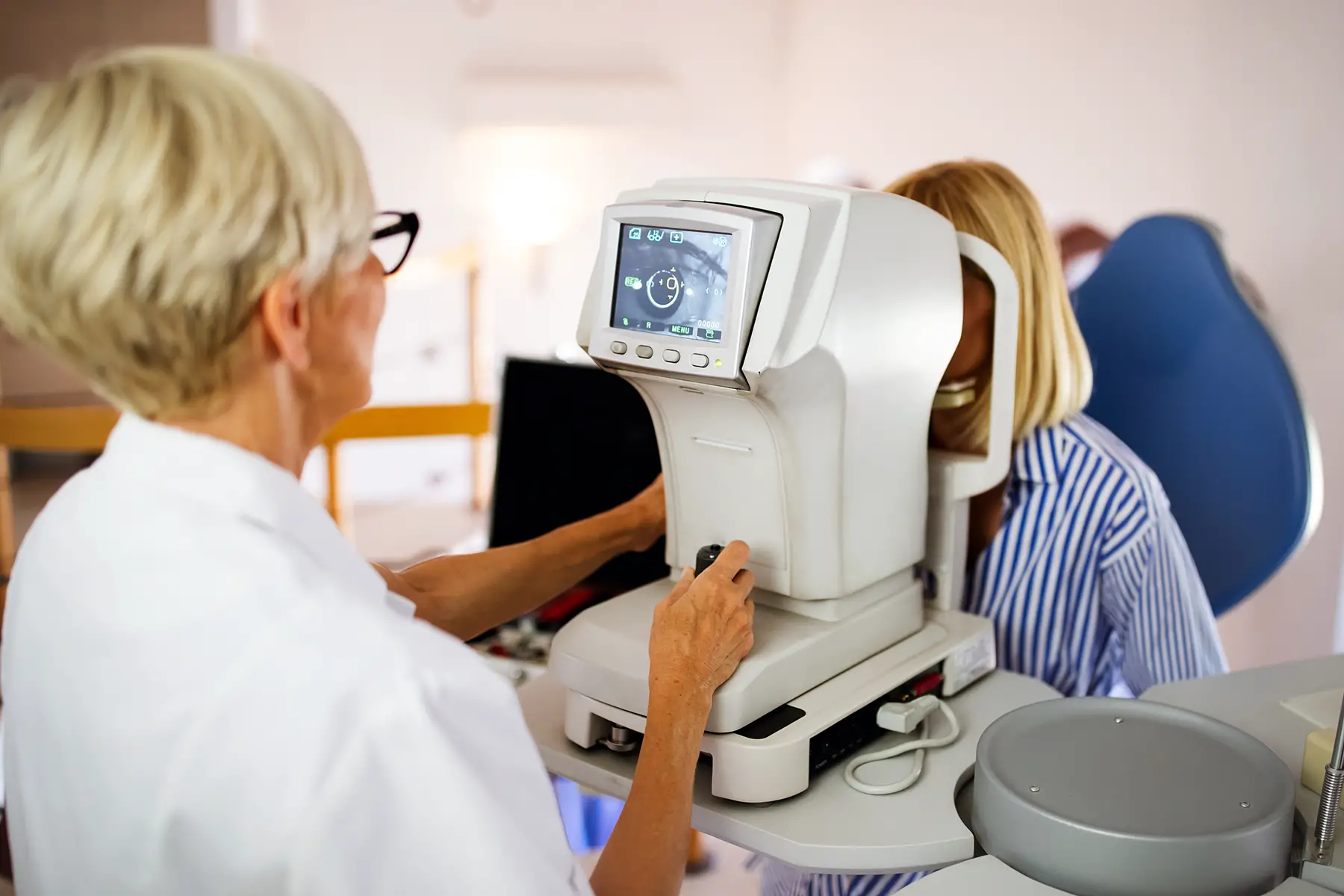Austria’s healthcare system makes accessing doctors easy and efficient, whether you need a quick consultation or a specialist’s expertise. From choosing the right doctor to navigating referrals, we’ll explain what you need to know to feel confident and cared for in a medical situation.
Continue reading for the following information:
- Overview of doctors in Austria
- Who can see a doctor in Austria?
- How to find a doctor near me in Austria
- How to see a doctor in Austria: step-by-step
- How much do doctor visits cost in Austria?
- Overview of Austrian doctors’ services
- How to complain about a doctor in Austria
- Practical medical words in German
- Useful resources
Overview of doctors in Austria
Austria boasts a universal healthcare system that covers nearly 99% of its residents, including expats. The system is funded through a combination of public and private health insurance, which ensures that all residents can access a broad range of medical services, including doctor visits (Arzt or Ärztin) and emergency care.
According to the EC 2023 country health profile, Austria has the second-highest density of doctors in the EU after Greece. In 2021, there were 5.4 physicians per 1,000 residents, compared to the EU average of 4.1. That said, the number of doctors can vary a lot depending on the location. For example, Burgenland had less than 4.4 per 1,000 inhabitants, while Vienna had over 7 (Österreichse Ärtzekammer, 2023).
And, somewhat appalingly, very few of these are family doctors. Only 14% of all Austrian doctors are GPs, a share that is one of the lowest in the EU (2021).

Doctors must be registered with the Austrian Medical Chamber (Österreichische Ärztekammer).
Family doctors or GPs in Austria
Family doctors or general practitioners (GPs – Hausarzt) are usually the first point of contact for medical issues. They work either alone or in group practices (Hausarztpraxis), and you are free to choose whichever doctor you prefer. Standard opening hours are from 08:00 to 18:00, Monday to Friday, with an hour in between for lunch. Most health clinics in Austria are closed on weekends and public holidays.
GPs conduct “light” tests, keep your medical records up-to-date, refer you to medical specialists, and coordinate follow-up treatments.
Medical specialists in Austria
If you need more specific care, the next step is usually a Facharzt (medical specialist). From dermatologists to neurologists, Austria’s network of specialized doctors is wide-ranging and easy to access, even for newcomers.
Medical specialists usually work in hospitals or private practices. While opening hours can vary significantly depending on the doctor, they typically fall between 08:00 to 18:00, Monday to Friday, with two hours in between for lunch.
You typically don’t need a GP referral to see a specialist, though it could help you and them identify your medical situation more easily. That said, if you prefer to skip a visit to the family doctor, companies like Austrian Health can help you find the right medical specialists for you.
Who can see a doctor in Austria?
Everyone can access medical care to some degree or another, including asylum seekers, refugees, and tourists. However, for non-urgent medical help, you have to pay large out-of-pocket costs or have health insurance coverage – either public, private, or both.

Our article on Austrian health insurance covers the topic (and costs!) in more detail, but basically, there are both public (Kassenarzt) and private doctors (Wahlarzt). While they both offer the same levels of quality care, the difference is in the insurance coverage and availability.
The country has more private doctors than it has public doctors. And while Kassenärzte are free with public health insurance, they often have longer waiting times and more rushed consultations. Wahlärzte, on the other hand, cost more but have more flexible appointment scheduling and longer, personalized exams.

Sebastian Arthofer
Krankenversichern
Insider tip: Private health insurance
There are more private doctors than there are public ones, so the chance of you receiving private care is very high. Without private health insurance, you’ll face large out-of-pocket costs.
How to find a doctor near me in Austria
If you are in a life-threatening situation, go to the nearest hospital emergency room (Notaufnahme). You can also call 144 for an ambulance or 112 for any type of emergency. But if your situation is less immediate (and more you looking for information), you can find Austrian doctors and GPs listed on the government’s e-portal, Öffentliches Gesundheitsportal Österreichs.
Doctors in Vienna are also listed on Praxisplan, the website of the Medical Association for Vienna (Ärztekammer für Wien). And, if you’re uncomfortable speaking German, you can find English-speaking doctors in Austria on Mobi Doctor.
For medical issues outside regular opening hours, you can also contact the on-call services (Ärztenotdienst) on 141. These doctors on duty work from 19:00 to 07:00, Monday to Friday, and all hours on the weekend.
How to see a doctor in Austria: step-by-step
Step 1: Register with your preferred doctor
Austrian residents are free to choose any doctor they want. You can switch physicians freely, and it’s not necessary to register beforehand. However, many people choose to stick with one GP for consistency and familiarity.

Step 2: Book a doctor’s appointment
Although some GPs accept walk-in patients, most require you to schedule an appointment in advance. You can do so with a quick phone call to the individual medical center or using an online service like Doctena. Specialists don’t do walk-ins.
Wait times for public Kassenärzte can be long compared to those of private Wahlärzte. You can generally expect to wait up to four days to see a GP and several weeks to see a specialist.
Step 3: Visit the health center
When you go to the scheduled appointment, make sure to bring your health insurance card (e-card) and ID. This card proves that you’re insured and contains your electronic health record (Elektronische Gesundheitsakte – ELGA). It also allows your doctor to upload any prescriptions for medications, should you need them.
If you don’t have health insurance, bring your wallet.
How much do doctor visits cost in Austria?
Without proper insurance, a consultation with a public doctor or GP in Austria costs around €50–100, depending on the location and services provided. Visits to specialists typically costs €80–200, especially when certain diagnostics or procedures are involved. You may also face additional charges for lab work, imaging, and prescriptions.
When you’re registered with a public health fund, all ‘purposeful and necessary’ treatments are covered up to the statutory insurance rate (Kassenleistung). This includes doctor visits and specialist care (though some services, like prescription medications and hospitalization, require a copayment).

That said, coverage also depends on your insurance fund and the health service provider. Basically, Austrian SHI funds negotiate and form contracts with a number of medical services based on quality and price:
- Treatment from a contracted healthcare provider is 100% covered
- Treatment from a non-contracted service is 80% covered
Reimbursements are calculated based on the Kassenleistung, not the full amount billed by the doctor. So, if a doctor charges €150 and the statutory insurance rate is €40, you’ll have to pay the remaining €110. And if you see a non-contracted specialist, public health insurance only pays for 80% of the statutory rate (i.e., €32).
Do I need health insurance in Austria?
Our article on health insurance in Austria explains everything in full detail, but as a quick summary:
- Public insurance is mandatory for working residents and pensioners
- All others, including tourists and students, can register voluntarily, take out private insurance, or pay for medical treatment themselves
There are many private health insurers in Austria, and it’s worth shopping around to find the best deals. Aside from the home-grown insurance providers, there are also international insurers that cater specifically to expats. These providers are ideal for residents who travel outside the country a lot and anyone who prefers expat-focused care:
Overview of Austrian doctors’ services
Prescription medications
If necessary, the doctor may prescribe you medication, which you can pick up from any pharmacy (Apotheke) in Austria. You’ll typically need to pay a standard fee, which, in 2025, is €7.55 per box. That said, depending on your situation, you may be exempt.
To find your nearest pharmacy, you can use any search engine or check this list of Austrian pharmacies.

Unlike in many other countries, Austrian doctors are known for their hesitancy in prescribing antibiotics. As such, you are not likely to get a prescription for antibiotics unless it is absolutely necessary.
Residents bringing foreign prescription medication into the country will need to provide a letter of explanation from their doctor. You should also:
- Ask your doctor to fill out this travel form
- Leave the medication in its original packaging
- Check that your medication isn’t banned in Austria
You are allowed to bring up to a five-day supply with you. If you have a ‘cross-border prescription’, you can bring a supply of up to 30 days.
Annual medical check-ups
As part of Austria’s preventative care strategy, everyone over 18 has access to one free annual check-up. This includes medical testing like blood, urine, blood pressure, electrocardiogram (ECG), cardiac stress test, and cancer prevention.
The annual health checks are conducted by GPs or doctors at public day clinics over two days. The first day is used for your blood and urine work, and the second for any other examinations. Afterward, the doctor will discuss your results with you and provide you with any recommendations.
How to complain about a doctor in Austria
If you want to file an official complaint about a doctor in Austria, you can contact the Austrian Ombudsman Board (AOB) for free. They will review your case and decide whether to investigate it further.
You can use the online form on the AOB website, call, email, or visit one of their consultation days. Note that for in-person visits, you must schedule an appointment in advance.
All investigative proceedings are conducted in German.
Practical medical words in German
Most doctors in Austria can communicate in English. However, it is a good idea to have a phrasebook or a translator app on your phone in case you need to explain more complicated health issues.
You’ll also want to remember some of these medical words in German:
| English | German |
| general practitioner | Hausartz |
| doctor’s office | Arztpraxis |
| appointment | Termin |
| pain | Schmerz |
| headache | Kopfschmerzen |
| stomach ache | Bauchschmerzen |
| back pain | Ruckenschmerzen |
| fever | Fieber |
| cough | Husten |
| prescription | Rezept |
| painkiller | Schmerzmittel |
Useful resources
- Oesterreich.gv.at – official government website with information about the healthcare system in Austria
- City of Vienna Health Services – government website with information on healthcare services and facilities in Vienna








